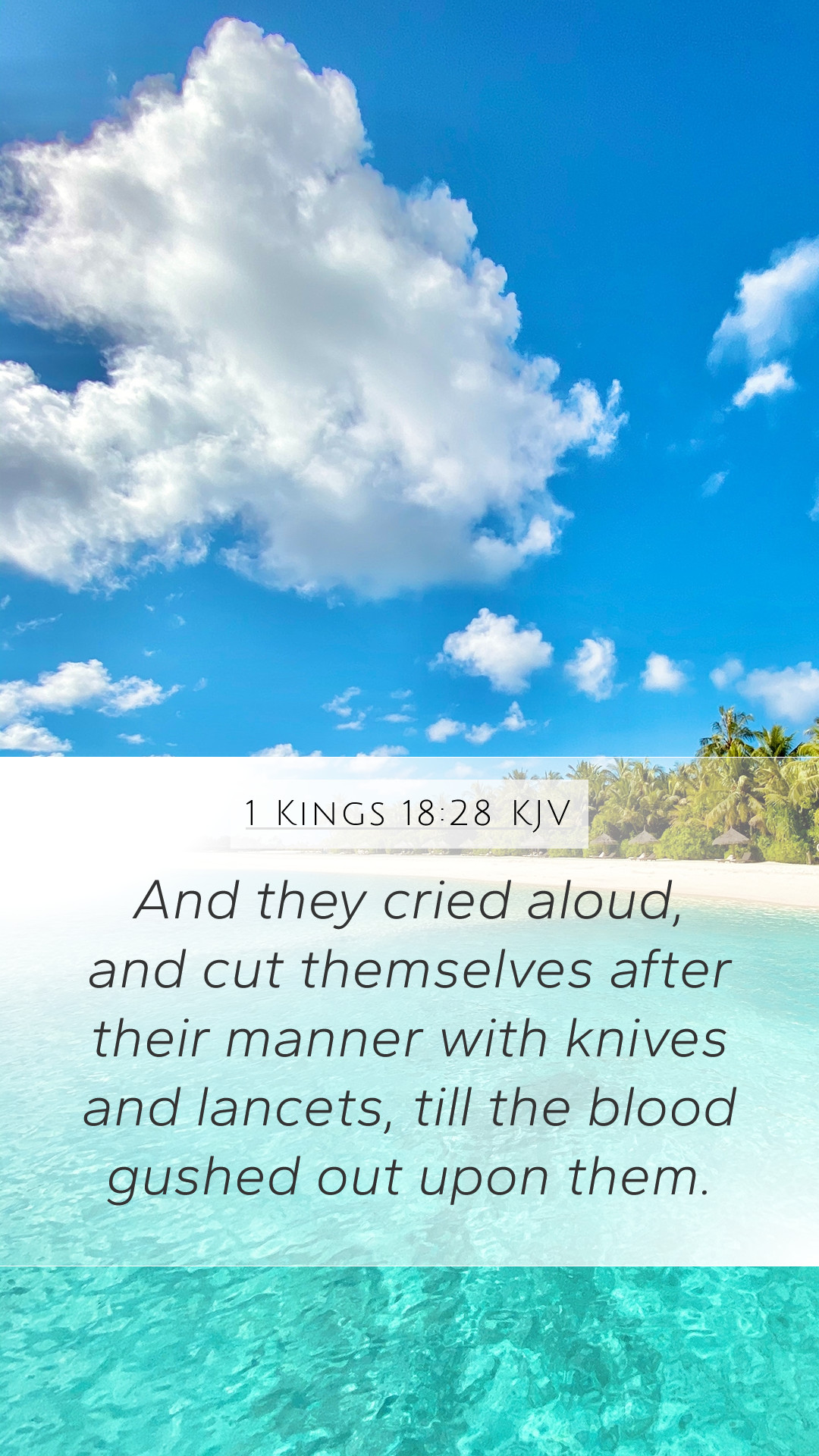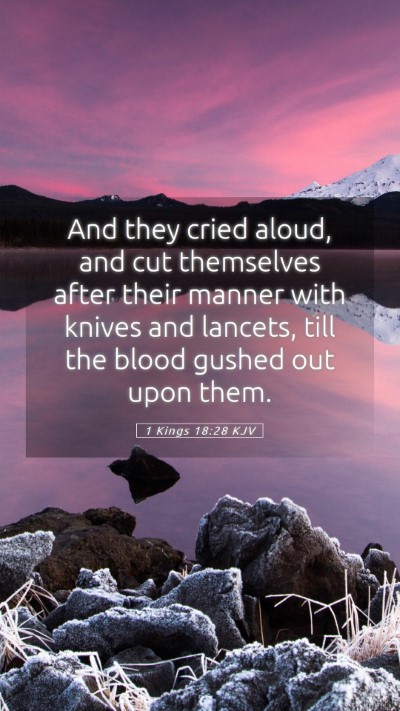Bible Verse Meaning for 1 Kings 18:28
Verse Context: In this passage, the prophets of Baal, during a contest on Mount Carmel, fervently call upon their god to send fire as proof of his power. They shout and cut themselves as part of their plea, which reflects intense desperation and commitment to their deity.
Summary of Insights
This verse encapsulates the futility of false worship and the desperation that often accompanies idolatry. The actions of the prophets of Baal illustrate the deep investment of their faith in a false god, revealing both the human tendency to seek after what is not true and the lengths to which individuals will go out of devotion to a cause that cannot save.
Interpretations from Commentaries
-
Matthew Henry:
Henry explains that the prophets of Baal were desperate in their attempts to secure a response from their god. Their actions of shouting and self-mutilation signify not only the seriousness of their worship but also a misguided belief that such acts could conjure divine attention. It reveals a critical spiritual truth: the necessity of genuine worship and the ineffectiveness of man’s efforts when disconnected from the true God.
-
Albert Barnes:
Barnes comments on the symbolism of the prophets' wild behavior, indicating that it reflects the chaos of idolatry. In their profound disregard for their own well-being in their cries for Baal to answer, they illustrate a stark contrast to the worship that God desires—one marked by sincerity rather than performative acts.
-
Adam Clarke:
Clarke provides insights into the cultural context of this encounter, suggesting that the prophets believed that striking their own bodies would make them more appealing to their god. He emphasizes the importance of understanding the cultural practices surrounding ancient worship, which often involved extreme rites that were thought to provoke a godly response.
Theological Implications
The encounter on Mount Carmel serves as a powerful reminder of the perils of idolatry. The exertion and anguish displayed by the prophets signify a spiritual vacuity that can lead individuals away from the truth. The futility of their efforts highlights God's sovereignty, as He alone holds the power to answer prayers in ways that are beyond human capability.
Application of the Verse
This verse calls to attention the importance of sincerity in worship and encourages individuals to evaluate the authenticity of their faith practices. It nudges us to consider how we express devotion and to whom we direct our worship. Modern readers can reflect on the distractions and idols in their lives that may divert their focus from true spiritual engagement.
Cross References
1 Kings 18:28 can be linked to the following verses for further study:
- 1 Kings 18:25-29 - The context of the contest between Elijah and the prophets of Baal.
- Matthew 6:5 - Jesus warns against hypocritical worship.
- James 5:16 - The power of earnest prayer.
Conclusion
1 Kings 18:28 is more than a historical account; it is a profound lesson on the nature of worship. By examining the actions of the prophets of Baal, readers gain understanding into the dangers of idolatry and the significance of true faith. Comprehending Bible verse meanings, interpretations, and explanations of such passages are essential for a deeper knowledge of Scripture.
Additional Insights for Bible Study Groups
Consider using tools like commentary resources, Bible study guides, and lessons focusing on this scripture to facilitate discussions in Bible study groups. Exploring practical applications of the verse can enhance understanding of how to live out one's faith authentically.


